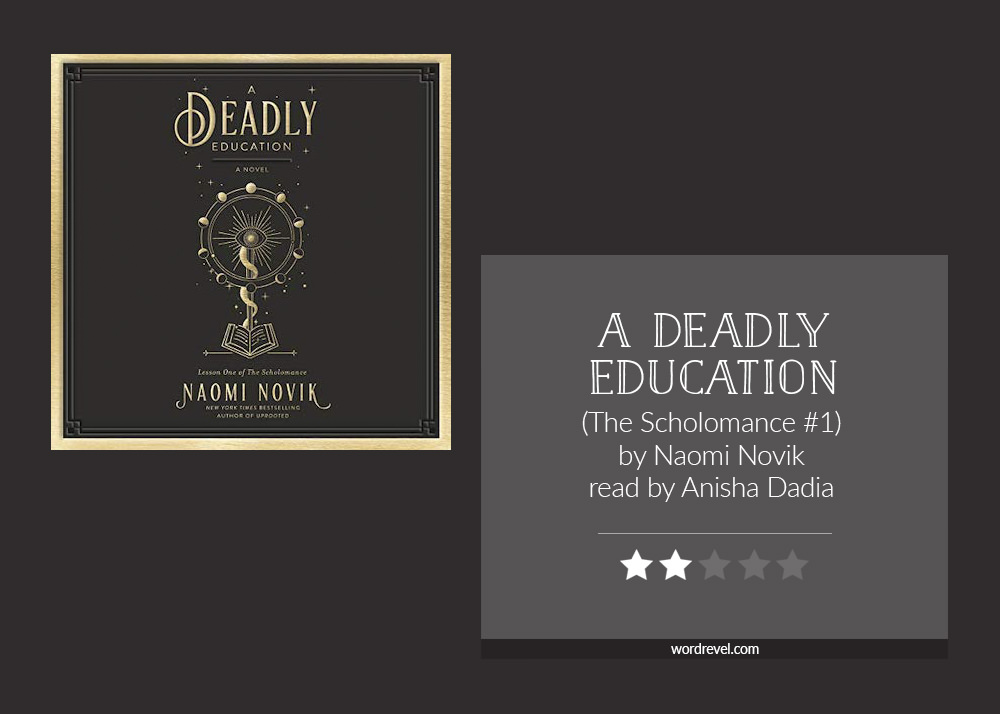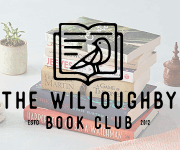
Synopsis:
I decided that Orion Lake needed to die after the second time he saved my life.
Everyone loves Orion Lake. Everyone else, that is. Far as I’m concerned, he can keep his flashy combat magic to himself. I’m not joining his pack of adoring fans. I don’t need help surviving the Scholomance, even if they do. Forget the hordes of monsters and cursed artifacts, I’m probably the most dangerous thing in the place. Just give me a chance and I’ll level mountains and kill untold millions, make myself the dark queen of the world. At least, that’s what the world expects.
Most of the other students in here would be delighted if Orion killed me like one more evil thing that’s crawled out of the drains. Sometimes I think they want me to turn into the evil witch they assume I am. The school certainly does. But the Scholomance isn’t getting what it wants from me. And neither is Orion Lake. I may not be anyone’s idea of the shining hero, but I’m going to make it out of this place alive, and I’m not going to slaughter thousands to do it, either. Although I’m giving serious consideration to just one.
A Deadly Education left me with very mixed feelings. The opening line held so much promise. It offered conflict and an intriguing dichotomy right from the get-go. Such as, why would anyone want to kill the very person who’d saved their life? What more when they had saved them more than once? I wanted answers but didn’t feel like I got much by the end of the book. Is this one premise supposed to span across the entire series? Evidently, but the opening of the story arc for it didn’t turn out as solidly as I had hoped.
Needed More Plot Development
A lot of time was dedicated to describing the magic system and the set-up of the Scholomance school. Yet I still didn’t get a grasp of what mala and mana meant until I looked up a couple of book reviews. I caved and did that when I was already a fifth into the audiobook. Despite the lack of brevity, clarity was not a strong suit of the book. This brings me to the next point.
So much of the book was focussed on the intricacies of how things worked at the school that the characterisation remained fairly bare bones. There was telling about the outside world although there were no any actual events happening outside of the school. Then there was Galadriel’s (El’s) disdain towards Orion with little explanation beyond El was generally surly.
El started off as a social recluse who grudgingly made friends and connections along the way. I did enjoy that as part of exploring this anti-hero. However, I didn’t learn all that much about what the rest of the people were like beyond Orion.
That’s the other thing, I didn’t quite buy in to the romance. Even though it was hinted at throughout A Deadly Education, it was also nearly non-existent. No progressive development unfolded either as it came up more like jump cuts.
Flimsy Cultural Representation
I actually started out rating A Deadly Education 3 stars but after penning down more gripes than loves, I docked a star and settled on two. That was mostly because I realised that the cultural representation was not a redeeming factor. Sadly, it was even thinner than the characterisations. Sure, there were references but that was it.
See, at first I was heartened at the apparent inclusiveness of characters from various cultures. The more I read on though, the more I felt that these mentions didn’t make a difference to the book. For example, a Mandarin speaking girl who helped El with Mandarin spells could’ve been French for all it mattered. It would not have subtracted or added to the plot. That to me was a disappointment because the diversity had absolutely no nuance to it, including the Indian origins of El.
El was biracial of Welsh and Indian descent. While she did grow up without her father, and only had brief interactions with her Indian relatives, it was too easy to forget. While I didn’t expect a thorough examination of her biracial roots, it seemed weird to me that they were barely even an afterthought and merely statements of fact to her. Growing up biracial myself, that was jarring because identity always becomes a conversation at some point, whether I choose it or not.
There was also the mention that her largely Hindu relatives had djinn as servants. That threw me off because djinn aren’t part of Hindu but Muslim beliefs. It might seem nit-picky but given how little about non-white cultures was mentioned despite the diverse student body, I expected at least those details to match up.
The Good Stuff
I did enjoy the idea of a school where self-learning was key due to the absence of teachers. Alliances were a strategic necessity for students who wanted to graduate alive. There were different tracks, of which El specialised in languages. I liked that spells could be used for trade, and that there were options of using existing ones or creating one’s own.
The concepts in A Deadly Education piqued my interest enough to continue with the sequel, The Last Graduate. It’s slated for publication mid next year, so the wait’s not too long, which’s always a bonus with series. I do hope that since the world building already took up so much of the first book that the second book will delve a lot deeper into plot. I did enjoy the writing style after all, and it’s that which drew me into A Deadly Education despite my reservations.
